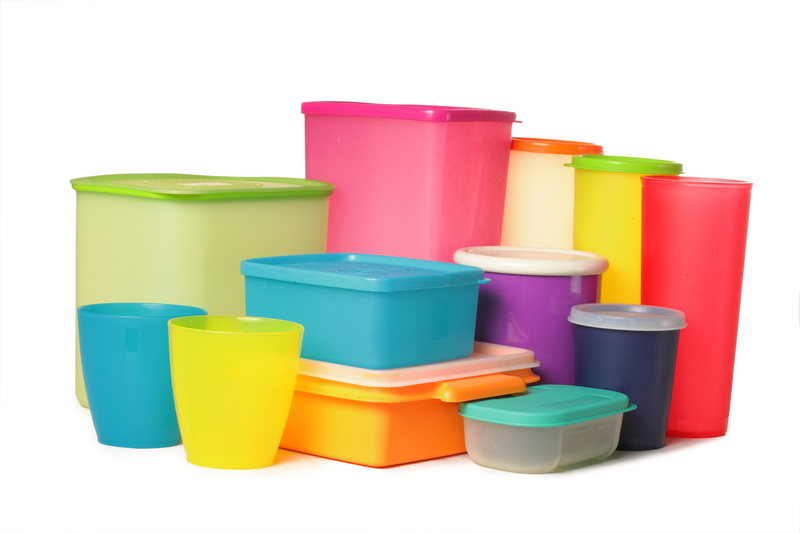Explore Your Options for Recycling Your Unused Chargers
In today's fast-paced world, technology evolves rapidly, and as a result, we often find ourselves with a drawer full of unused chargers and cables. Rather than letting them gather dust or contributing to electronic waste in landfills, why not explore your options for recycling your unused chargers? This comprehensive guide will walk you through eco-friendly, responsible, and creative solutions for recycling old chargers and making a positive impact on the environment.

Why Recycle Your Unused Chargers?
It's easy to overlook the impact that old phone chargers and cables have on our planet. However, electronic waste, or e-waste, is one of the fastest-growing waste streams worldwide.
- Chargers contain valuable materials--metals like copper, aluminum, and even small amounts of gold.
- Poor disposal can leak toxic materials like lead and mercury into the environment.
- Recycling conserves resources and reduces the need for mining new materials.
By choosing to recycle your unused chargers, you not only declutter your space but also contribute to a healthier planet.
Understanding What Happens When You Throw Away Chargers
When chargers are thrown into regular household bins, they often end up in landfills. Here, the plastics and metals take hundreds of years to decompose--leaching chemicals into soil and contaminating water supplies. Worse, many chargers and cables are incinerated, releasing harmful dioxins and pollutants into the air.
Proper recycling ensures that your unused electronics are processed safely, recover valuable materials, and support the circular economy.
How Are Chargers Recycled?
The recycling process for old chargers involves several steps:
- Collection: Chargers are collected from drop-off points or through mail-back programs.
- Sorting: They are separated from other types of e-waste and sorted by material.
- Disassembly: Chargers are manually taken apart. Plastics, metals, and circuits are separated.
- Processing: Metals and plastics are shredded and processed for reuse in manufacturing new products.
- Safe Disposal: Any hazardous components are disposed of responsibly, following environmental regulations.
Recycling Solutions for Unused Chargers
1. Retail Store Take-Back Programs
Many major electronics retailers and mobile network providers offer recycling programs for unused phone chargers and other e-waste.
- Best Buy: Offers free e-waste recycling at most locations. Look for the in-store bins typically located near the entrance.
- Staples: Accepts a wide range of electronics, including charging cables and adapters, in their stores.
- Apple: Keen on sustainability, Apple takes back old chargers and cables at their retail stores and through their mail-in program.
- Verizon: Runs a device recycling program accepting chargers and accessories at select locations.
- Local Mobile Shops: Often participate in manufacturer-led recycling initiatives--check with your nearest store!
2. Local Recycling Centers and E-Waste Facilities
Your community might have designated e-waste recycling centers that responsibly manage electronic items, including unused charging cables and adapters.
- Use online tools such as Earth911's Recycling Locator or your local government's website to find the nearest drop-off locations.
- Many cities organize periodic "e-waste collection events" - a great opportunity to safely dispose of old electronics.
- Some recycling centers partner directly with electronics manufacturers for more efficient processing.
3. Manufacturer Recycling Programs
Many brands are committed to sustainability and offer recycling for their products:
- Apple: Their Apple Recycling Program accepts old chargers and cables, either by mail or in-store drop-off. Apple ensures the safe and responsible recycling of all collected items.
- Samsung: The company provides e-waste disposal events and partners with retailers for dedicated collection points.
- HP, Dell, Lenovo and More: Several major electronics manufacturers have "take-back" programs for accessories, including power adapters.
4. Mail-In Recycling Services
If you don't have convenient local drop-off points, consider mail-in recycling services for your unused or surplus chargers:
- Call2Recycle: National programs that allow you to print a shipping label and send unwanted electronics safely for recycling.
- TerraCycle: Offers Zero Waste Boxes that you can fill with cords, chargers, and small electronic accessories. Once full, mail it back for processing.
- Best Buy's Mail-In Program: For certain locations, they provide prepaid shipping for smaller accessories.
5. Community Collection Drives
Various communities, schools, and NGOs host periodic electronics recycling events:
- Check bulletin boards, local newspapers, or municipal websites for the next event in your area.
- These drives often accept a variety of e-waste, making them a one-stop solution for responsibly disposing of unused gadgets and chargers.
- Events typically partner with certified recycling firms, ensuring safe handling of materials.
6. Donate or Reuse Before You Recycle
Sometimes, your old phone charger can be a treasure for someone else:
- Schools and nonprofits often need extra chargers for classroom tablets, laptops, and phones.
- Charities distribute working electronics and accessories to those in need domestically and abroad.
- Local shelters, libraries, or community centers may appreciate donations that help keep their devices running.
7. Creative Upcycling Ideas for Old Chargers
If you're feeling crafty, consider upcycling your unused chargers:
- Cable organizers: Use the cords as twist-ties or organizers for other cables.
- Art projects: Old cables make for interesting material in sculptures or DIY jewelry.
- Educational demonstrations: Use cut-open cables to show students how electronics are made.
Best Practices: How to Prepare Chargers for Recycling
To ensure your unused chargers can be safely and efficiently recycled, follow these preparation tips:
- Remove any personal data from smart chargers or adapters that may have built-in memory.
- Untangle and organize cables - this makes the recycling process smoother.
- Bundle similar types of chargers together and secure with a reusable tie or rubber band.
- Include all parts, such as plug adapters or USB cables, which might be processed together.
- Clearly label your items as "electronics recycling" if depositing at a community event or drop bin.
Never attempt to open or dismantle chargers yourself. This could expose you to hazardous components. Let certified e-waste professionals handle disassembly.
What Not to Do With Old Chargers
Avoid these common mistakes when disposing of old phone chargers and cables:
- Do not throw them in regular trash--this is harmful to the environment and often illegal in many areas.
- Do not incinerate electronics--they can release toxic fumes.
- Do not donate broken or dangerous chargers. Only donate cables and adapters in safe, working condition.
- Do not leave cables exposed to children or pets--they may pose choking or electrical hazards.
FAQs: Your Questions Answered About Charger Recycling
Are all types of chargers recyclable?
Nearly all types of chargers, from USB-C to Lightning to proprietary laptop bricks, are recyclable. However, some recycling programs have restrictions, so always verify with your chosen drop-off point if unsure.
Can I get money for recycling old chargers?
Most programs are donation-based and don't offer payment. However, some online marketplaces and electronics buyback platforms accept functioning chargers, though the payout is usually minimal.
Is it safe to recycle counterfeit or damaged chargers?
Yes. In fact, it's safer to recycle dangerous or counterfeit chargers rather than using or donating them. Certified e-waste processors have protocols for handling potentially hazardous items.
How often should I recycle unused chargers?
Set aside time every year to review your electronics drawer. If you have surplus cables or chargers you no longer need, follow the steps above for safe and responsible recycling or upcycling.

The Environmental Impact: Why Every Charger Matters
Even one charger might not seem like much, but with billions of devices in circulation worldwide, the cumulative impact is immense. According to the United Nations, up to 50 million tons of e-waste are generated annually--a figure expected to rise in coming years.
By recycling your unused chargers and responsibly handling all types of e-waste, you help reduce pollution, conserve valuable resources, and support a cleaner, greener world.
Summary: Taking Action to Recycle Your Unused Chargers
Don't let your unused chargers go to waste. From retail take-back programs and community drives to innovative mail-in solutions and creative upcycling, there are plenty of options for safely and sustainably recycling your surplus charging accessories.
- Locate a reputable recycling location near you.
- Consider donating before tossing--someone else may benefit from your old cable.
- Practice safe preparation and disposal to aid recyclers and keep your community safe.
- Raise awareness--share what you've learned with friends, family, and colleagues.
The next time you open your cluttered electronics drawer, remember: recycling your unused chargers is a simple, effective, and critical step you can take toward a more sustainable lifestyle.
With so many convenient and eco-friendly options available, explore your options for recycling your old and unused chargers today--and help power a better tomorrow.